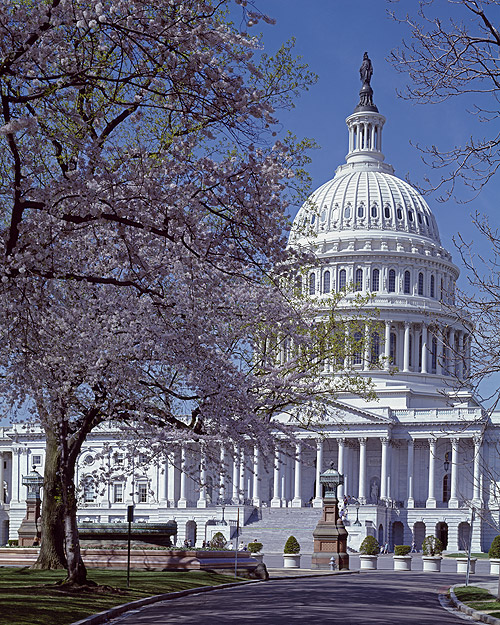U.S. News: The U.S. Government Is Closed for Business

Standoff over Obamacare results in 16-day government shutdown.
On September 30, 2013, after several attempts by the House, Senate, and President Barack Obama to reach a deal on the federal budget ceiling and the funding of the Affordable Care Act, also known as Obamacare, the Senate rejected a Republican bill, forcing a partial shutdown of the government beginning on Oct. 1. The bill, approved earlier by the House, would have funded the government but delayed full implementation of Obamacare and eliminated a tax on medical devices that would cover some costs of the new health care program. As the Oct. 1 deadline approached, Republicans in the House showed no signs of backing down on the bill, despite little public support for the shutdown. In a New York Times/CBS News poll, 87% of respondents said they were frustrated about the potential shutdown and 69% said they would prefer an agreement over the budget and Obamacare over a U.S. default on its debt. On the morning of September 30, Speaker John Boehner said on the House floor, "The House has done its work. We passed a bill on Saturday night — sent it to the United States Senate — that would delay Obamacare for one year, and would eliminate permanently the medical device tax that is costing us tens of thousands of jobs that are being shipped overseas." Boehner also said that the health care law "is not ready for prime time." Boehner's intransigence may be a response to pressure from the Tea Party and other conservative groups, which have been lobbying members of Congress and staging "Defund Obamacare" protests for months. World Economy in DangerThat same day, President Obama urged Congress to agree on a bill. “We are the foundation of the world economy and the world financial system. And our currency is the reserve currency of the world. We don’t mess with that. And we certainly don’t allow domestic policy differences on issues that are unrelated to the budget to endanger not only our economy but the world economy," he said during a public appearance. As the government shut down on October 1, some Americans felt the impact more than others. A partial shutdown meant that unemployment, social security and Medicare benefits would not be interrupted. The mail service would continue. Federal air traffic controllers and airport security screeners would still report to work. However, all national parks and Smithsonian museums would close. People seeking government backed mortgages and loans could see delays. Active military personnel, about 1.4 million people, would stay on duty, but their paychecks would be delayed. Health and safety inspectors would stop workplace inspections except in emergency situations. The impact of the U.S. government shutdown was already being felt by the world's financial markets as stocks fell around the globe on September 30, 2013. Another Default Avoided in the 11th HourThroughout the first two weeks of October 2013, Congressional Republicans continued their battle against the new health care law. Meanwhile, not only was Congress taking heat from the partial shutdown, but the October 17 debt ceiling deadline approached quickly. The U.S. government faced a possible default for the second time since 2011. However, like the situation in 2011, Congress came through at the last minute. On October 16, 2013, the night before the debt ceiling deadline, both the House and Senate approved a bill to fund the government until January 15, 2014, and raise the debt limit through February 7, 2014. The bill ended the 16-day government shutdown. It also ended the Republican standoff with President Obama over the Affordable Care Act. With a new federal budget needed by early 2014, the stage was set for another Congressional standoff in just a few weeks. Hoping to avoid that, Obama spoke shortly after the Senate passed the latest bill. He urged Congress to move ahead to the next budget negotiation, "We've got to get out of the habit of governing by crisis. We could get all these things done even this year, if everybody comes together in a spirit of, how are we going to move this country forward and put the last three weeks behind us?" |
- More from 2013 News of the Nation









